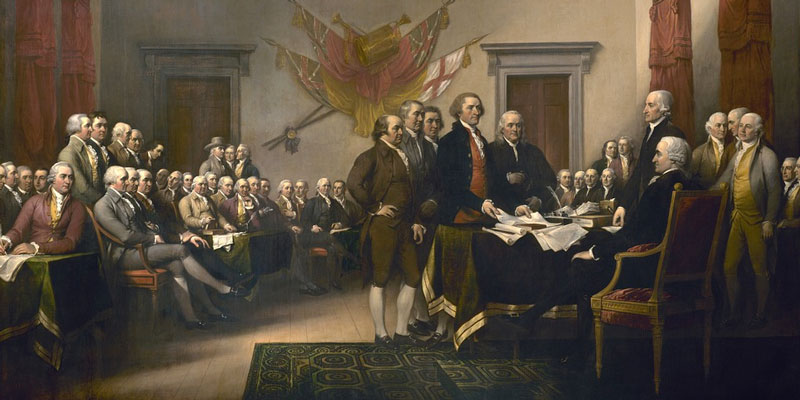The United States is a relatively young country, but we have the oldest written national constitution. On this Constitution Day, we honor this incredible document, which has persisted for over two centuries and inspired a host of other constitutions around the world.
Today marks the 234th anniversary of the signing of the Constitution. Our Constitution has endured for so long thanks to a combination of unique features. As I discussed last year, one of the most important features is the way the Constitution divides power — both among the three branches of the federal government and between the federal government and the 50 states. Another key feature is its protection of individual rights. Several prominent members of the founding generation believed that no legitimate law of the land could exist without specific, written guarantees of individual liberties. Their conviction eventually inspired the first ten amendments to the Constitution, known as the Bill of Rights.
The Bill of Rights begins with the First Amendment, which enshrines rights that are most fundamental to a free society, among them the freedom of religion and the freedom of speech. By protecting these essential liberties, the First Amendment affirms the right of every citizen to worship God in accordance with his conscience and to freely speak his mind.
The Second Amendment, which recognizes the right of citizens to keep and bear arms, enables the American public to protect the rights spelled out in the First Amendment — and in all the other amendments that come after it. As George Mason, one of the principal advocates for a federal bill of rights, explained in 1774, an armed and capable citizenry is “necessary to protect our ancient laws and liberty” from tyranny. History’s most brutal dictators all rose to power while presiding over unarmed subjects: neither Stalin, nor Hitler, nor Mao, faced significant armed civilian resistance. By guaranteeing American citizens the right to defend themselves, the Second Amendment ensures that our nation will always have a check against despotism, both foreign and domestic.
The next eight amendments in the Bill of Rights list additional protections of individual freedoms. For example, the Fourth Amendment guards the right to be free from unreasonable searches or seizures, and the Eighth Amendment prohibits cruel and unusual punishments. And the last of the original amendments, the 10th, protects both individual citizens and the states in which they live from federal overreach. It accomplishes this by affirming that any powers not granted to the federal government are “reserved to the States respectively, or to the people.”
These protections of liberty are among the most remarkable in the world. But we must not take them for granted. As history shows us, merely codifying rights on paper is not enough. Libya’s constitution, for example, guarantees its citizens numerous “human fundamental rights and freedoms,” including “equal civil and political rights,” yet Libya remains plagued by an active slave trade, pervasive governmental corruption, and a litany of other human-rights abuses. North Korea has its own bill of rights, which rings equally hollow.
The reason America’s guarantee of rights has succeeded where others’ have failed is because our Bill of Rights is reinforced by a strict separation of powers, a federalist structure containing fifty sovereign states, and the liberty-loving spirit of the American people. As long as we hold fast to these principles and maintain our defense of liberty, we will be able to celebrate Constitution Day for centuries to come.
Jay Mitchell is an Associate Justice of the Supreme Court of Alabama










